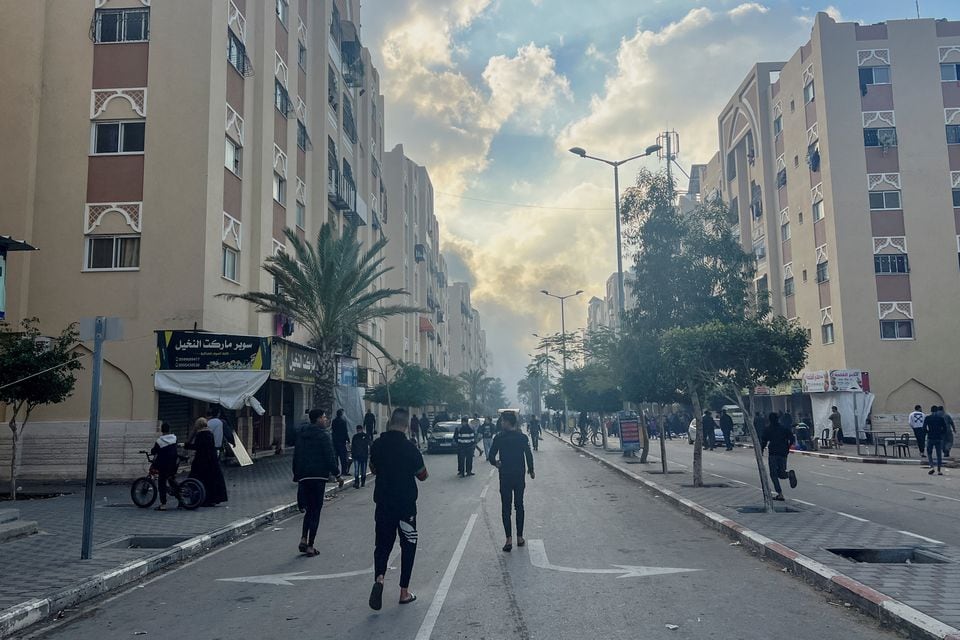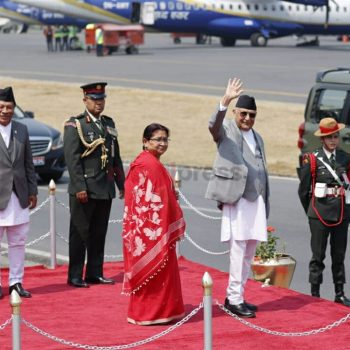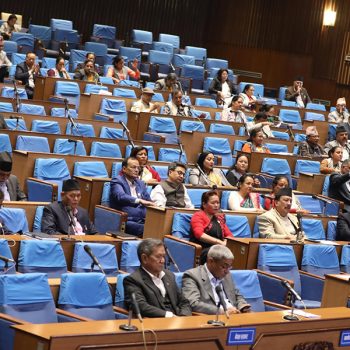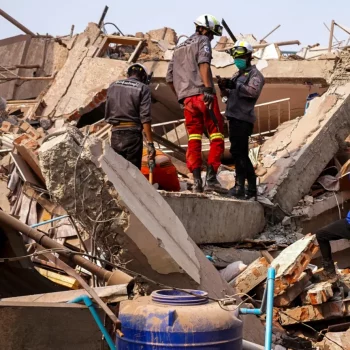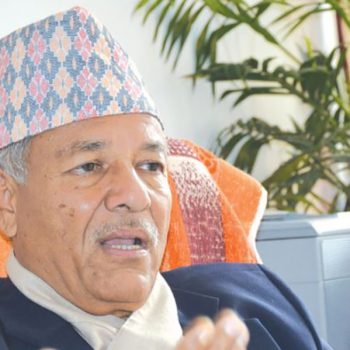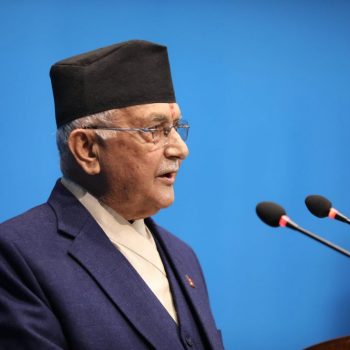Foreigners airlifted out; Sudanese seek refuge from fighting
 NepalPress
NepalPress

As foreign governments airlifted hundreds of their diplomats and other citizens from Sudan, Sudanese on Monday desperately sought ways to escape the chaos amid fears the country’s two rival generals could escalate their all-out battle for power once evacuations were completed, Associated Press reported.
Many Sudanese, along with Egyptians and other foreigners who could not get on flights, risked the long and dangerous drive to the northern border into Egypt.
“We traveled 15 hours on land at our own risk,” Suliman al-Kouni, an Egyptian student, said at the Arqin border crossing with Egypt. Buses lined up at the remote desert crossing carrying hundreds of people, he said. Al-Kouni was among dozens of Egyptian students making the trek. “But many of our friends are still trapped in Sudan,” he said.
Prominent Sudanese filmmaker Amjad Abual-Ala wrote on Facebook that his mother, siblings and nephews “are on the road from Sudan to Cairo through Aswan,” referring to Egypt’s southernmost city.
Fighting raged in Omdurman, a city across the Nile River from Khartoum, residents said, despite a hoped-for cease-fire to coincide with the three-day Muslim holiday of Eid al-Fitr.
“We did not see such a truce,” Amin al-Tayed said from his home near state TV headquarters in Omdurman, adding that heavy gunfire and thundering explosions rocked the city.
Over 420 people, including 264 civilians, have been killed and over 3,700 wounded in nine days of fighting between the Sudanese armed forces and the powerful paramilitary group known as the Rapid Support Forces.
The RSF said the armed forces unleashed airstrikes on the upscale neighborhood of Kafouri, north of Khartoum. There was no immediate army comment. The ongoing violence has affected operations at the main international airport, destroying civilian planes and damaging at least one runway, and thick, black smoke rose above it. Other airports also have been knocked out of operation.
Still, the two sides have eased fighting enough for the stream of international military aircraft to land in the Khartoum area and extract foreign citizens since Sunday.
The exodus began with American special operations forces swooping in and out of Khartoum in helicopters early Sunday to evacuate U.S. Embassy personnel.
France brought out nearly 400 people, including citizens from 28 countries, on four flights to the nearby Horn of Africa nation of Djibouti, two of them overnight. A Dutch air force C-130 Hercules flew out of Sudan to Jordan in the early hours Monday carrying evacuees of various nationalities, including Dutch, on board. Germany has so far conducted three flights out of Sudan, bringing more than 300 people out to Jordan.
Italy, Spain, Jordan and Greece also brought out a total of several hundred more people, including their own citizens of those of other countries.
Evacuations appeared likely to continue if conditions of fighting allow. Although American officials said it was too dangerous for a government-coordinated evacuation of thousands of private U.S. citizens, other countries scrambled to remove their citizens who wanted to leave.
Japanese nationals are being transported by land to an eastern town to be picked up by Japanese aircraft positioned in Djibouti, Japanese media said. France and Germany each said they were prepared to do more flights if possible.
British Prime Minister Rishi Sunak tweeted that U.K. armed forces evacuated British diplomatic staff and dependents. But Britain’s Middle East Minister, Andrew Mitchell, said about 2,000 U.K. citizens still in Sudan have registered with the embassy for potential evacuation. Many Britons in the country have complained about a lack of information from the government and say they are in the dark about any evacuation plans.
Mitchell told the BBC that the government was doing “intense planning” for “a series of possible evacuations.”
Egypt, which said it had over 10,000 citizens in Sudan, urged those in cities other than Khartoum to head to consular offices in Port Sudan and Wadi Halfa in the north for evacuation, the state-run MENA news agency reported.
EU foreign policy chief Josep Borrell told reporters in Luxembourg on Monday that the evacuation operation has been successful, with more than 1,000 brought out by EU members.
“We have to continue pushing for a political settlement. We cannot afford that Sudan, which is a very populated country, implodes because it will be sending shock waves around the whole (of) Africa,” he said. He earlier tweeted that he had spoken with the rival commanders urging a cease-fire.
The army chief, Gen. Abdel-Fattah Burhan, and the RSF leader Gen. Mohammed Hamdan Dagalo, however, have so far appeared determined to fight to the end. Thousands of Sudanese have fled fighting in Khartoum and elsewhere, U.N. agencies said, but millions are sheltering in their homes amid explosions, gunfire and looting without adequate electricity, food or water.
Hospitals have struggled as violence rages. Many wounded are stranded by the fighting, according to the Sudan Doctors’ Syndicate that monitors casualties, suggesting the death toll is probably higher than what is known.
The rival generals came to power after a pro-democracy uprising led to the 2019 ouster of former strongman Omar al-Bashir. In 2021, the generals joined forces to seize power in a coup.
The current violence came after Burhan and Dagalo fell out over a recent internationally brokered deal with democracy activists that was meant to incorporate the RSF into the military and eventually lead to civilian rule.
Khalid Omar, a spokesman for the pro-democracy bloc that seeks to restore civilian rule, urged both generals to resolve their differences. “There is an opportunity to stop this war and put the county on the right path,” he wrote on Facebook. “This is a war fueled by groups from the deposed regime who want it to continue.”
In other fighting, a senior military official said it repelled an RSF attack on Kober Prison in Khartoum where al-Bashir and former officials in his movement are held. A number of prisoners fled and some were killed or wounded, but al-Bashir and other high-profile inmates were in a “highly secure” area, the official speaking on condition of anonymity because he was not authorized to talk to the media.
Sudan experienced a “near-total collapse” of internet and phone service Sunday, according to the monitoring service NetBlocks.
“This will have a major effect on residents’ ability to stay safe and will impact the evacuation programs that are ongoing,” said Netblocks director Alp Toker. ___ Associated Press writers Isabel DeBre in Jerusalem, Samy Magdy in Cairo, Michael Corder in The Hague, Netherlands, Angela Charlton in Paris, Frances D’Emilio in Rome and Fay Abuelgasim in Beirut contributed to this report.




